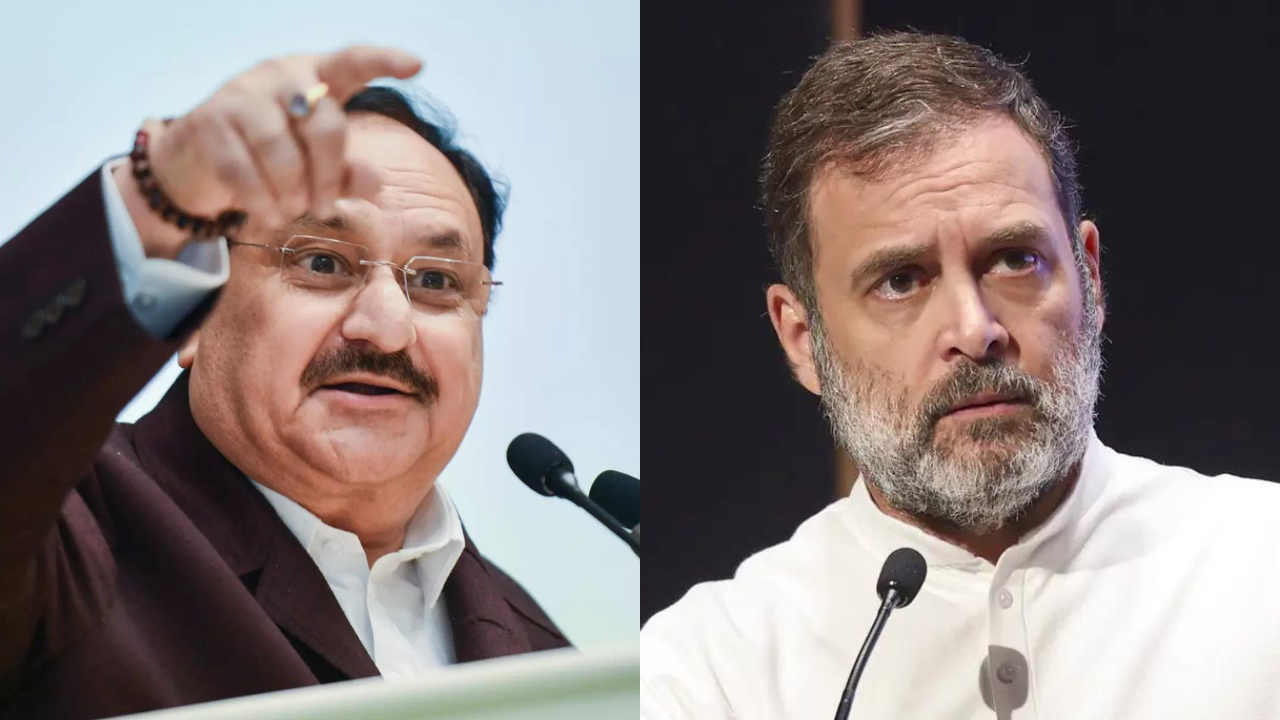Rahul Gandhi's Explosive Claims: Is He Fighting the Indian State?
Brace yourselves, folks, because the political pot is boiling over! Rahul Gandhi, the prominent leader of the Indian National Congress, has dropped a bombshell, claiming his party is locked in a battle not just against the BJP and RSS, but against the Indian state itself! This explosive statement has ignited a firestorm of controversy, with accusations flying fast and furious. Is Gandhi's claim justified, or is there more to this political drama than meets the eye?
The Gandhi-State Showdown: Unraveling the Allegations
Rahul Gandhi's assertions paint a picture of a deeply entrenched battle against the ruling powers. He alleges that the BJP-RSS combine has infiltrated every crucial institution, leaving Congress battling not just political opponents, but systemic opposition as well. This bold assertion directly challenges the legitimacy of established governmental structures, igniting a national debate on the state of Indian democracy and institutional integrity. The controversy sparked by these accusations will keep political analysts and experts busy for quite some time.
The 'Deep State' Conspiracy and Soros's Shadow
The BJP hasn't shied away from a fiery counterattack, quickly linking Gandhi's claims to a far-reaching conspiracy. They've accused Gandhi and his associates of close ties to urban Naxals and even suggest that shadowy billionaire George Soros is pulling the strings behind this so-called 'anti-India' campaign. This adds an intriguing layer of conspiracy, injecting high drama into an already contentious situation. The reference to Soros adds an international twist, suggesting a vast, global network working against India, according to the BJP's viewpoint. This line of argument has certainly turned up the heat on this highly controversial conflict.
The Election Commission Accusations: Transparency Under Scrutiny
Gandhi's speech also targeted the Election Commission of India, accusing it of suppressing crucial voter information. This accusation has ignited significant debate, questioning the integrity and transparency of the electoral process in India. With many questioning the recent state-level election outcomes, particularly in states such as Maharashtra, Gandhi's accusations provide a fertile ground for suspicion and a closer scrutiny of existing policies and procedures.
Bhagwat's 'Treasonous' Remarks: A Historical Clash
Adding further fuel to the fire, Gandhi denounced RSS chief Mohan Bhagwat's assertion that India achieved "true independence" only after the construction of the Ram Temple. Calling this a disrespectful insult to India's freedom struggle and independence movement, Gandhi deemed this statement to be a form of "treason." This statement adds a historical dimension to the controversy, triggering debate over conflicting ideologies, and raising questions about who controls the official narrative of Indian history. Gandhi's fiery retort demonstrates his strong commitment to standing firm on his convictions.
The Political Fallout and the Future of Indian Politics
The fallout from these accusations has been immense, resulting in a huge public response. Both sides have dug in for what appears to be a long fight. Will this lead to significant reforms and a more transparent government or will it only deepen the existing divides? The outcome will significantly influence the future of Indian politics, defining the terms of the ongoing ideological clashes between different ideological forces. This showdown appears set to be a prolonged battle of political might and public discourse. Only time will tell who emerges victorious and what effects that will have on the Indian nation.
Take Away Points
- Rahul Gandhi's accusations have launched a massive political firestorm.
- The BJP's counterarguments and references to the alleged Soros conspiracy add layers of intrigue.
- Accusations of voter list suppression cast a shadow on election transparency.
- Gandhi's sharp rebuke of Mohan Bhagwat's assertions introduces a historical dimension to the conflict.
- The outcome of this ongoing clash will have profound implications for the future of Indian politics.




